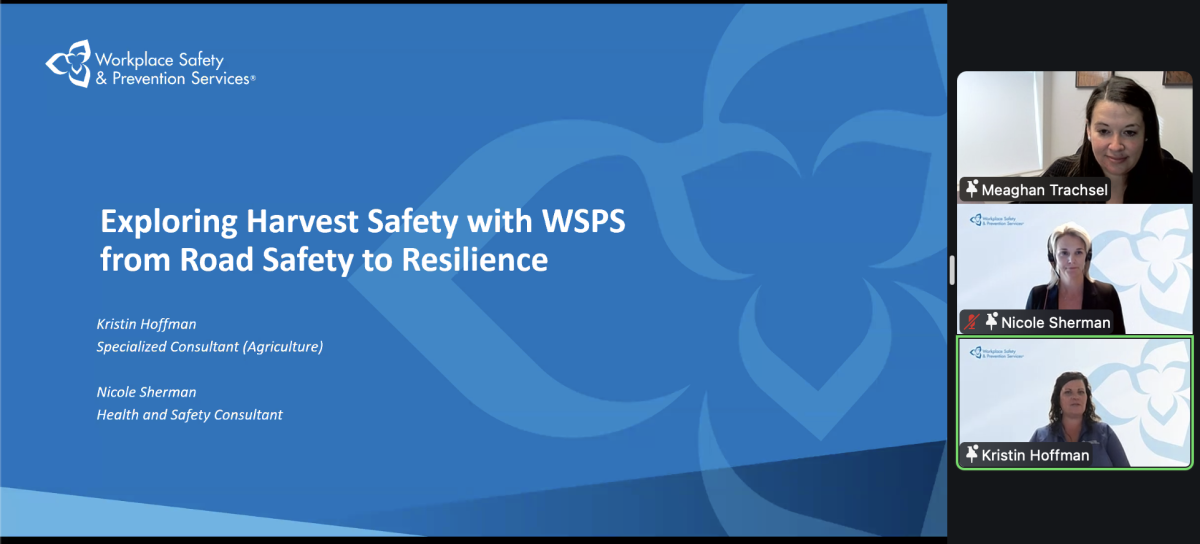Federal Agriculture Minister Gerry Ritz and his U.S. counterpart have agreed to set up a “high-level working group” they say will advance a “science-based” approach to global ag trade.
Such a group would help improve flows of ag goods between Canada and the U.S., improve “regulatory approaches” and “further strengthen the Canada-US approach to food safety,” Ritz and U.S. Agriculture Secretary Tom Vilsack said in a U.S. Department of Agriculture release Tuesday.
Details of the working group are to be announced “at a later time,” USDA said.
Read Also

Exploring Harvest Safety
Kristin Hoffman of WSPS explains measures for increased farm safety around harvest season
The bilateral working group would “examine ways we can collaborate and promote more free exchange of agricultural products between our countries, and in markets around the globe,” Vilsack, a former Iowa governor, said in the release.
“The farmers and ranchers in the (U.S.) and Canada are among the most productive in the world, and they only benefit by reducing barriers to markets.”
“Canada and the U.S. already exchange over C$34 billion in agricultural products every year,” Ritz said in the release. “Working together, we can break down barriers overseas and expand the opportunities for Canadian and American farmers throughout the world.”
Equivalency
Promotion of science-based agricultural trade through this bilateral group would include reducing trade barriers for genetically engineered (GE) products and other issues, to the “shared benefit” of both countries’ agricultural sectors, they said.
Both also reaffirmed their interest in co-operation on “priority” markets for beef and other high-value products where possible.
They also pledged to “implement and strengthen” the two countries’ organic equivalency standards.
Canada and the U.S. in June last year entered an agreement on trade in organic products, in which their organic regulatory systems would be assessed and compared and, where possible, deemed “equivalent” if the principles and outcomes involved are the same.
Imported organic products ruled to be in compliance with an “equivalent” foreign regulatory regime then wouldn’t need to be re-certified to the importing country’s standards by its own accredited certification agencies.
















